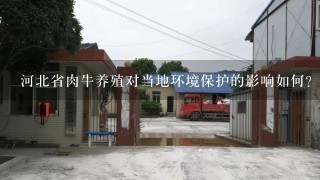河北省肉牛养殖对当地环境保护的影响如何?

Answer:
The intensive livestock farming in Hebei Province, China, has significant impacts on the local environment, including water pollution, air pollution, soil degradation, and biodiversity loss.
Water pollution:
- Livestock waste and runoff pollute rivers, lakes, and groundwater with nitrogen and phosphorus, which can lead to algal blooms and oxygen depletion.
- The intensive use of fertilizers and pesticides also contributes to water pollution.
Air pollution:
- Livestock waste and manure burning release large amounts of methane, a potent greenhouse gas, into the atmosphere.
- The use of fossil fuels for transportation and heating also contributes to air pollution.
Soil degradation:
- Overgrazing by livestock can lead to soil erosion, desertification, and loss of fertility.
- The use of chemical fertilizers and pesticides can also damage soil health.
Biodiversity loss:
- Intensive livestock farming often involves the use of antibiotics and pesticides, which can harm beneficial microorganisms and disrupt the ecosystem balance.
- The loss of natural habitats and disruption of migration routes also negatively impact biodiversity.
Other impacts:
- The intensive farming system can also lead to deforestation, habitat loss, and pollution of surface and ground water.
- The transportation and processing of livestock products also generate waste and emissions.
Overall, the livestock farming industry in Hebei Province has severe environmental impacts, including water pollution, air pollution, soil degradation, and biodiversity loss. These impacts can have significant consequences for the local environment, human health, and the global climate.





































































